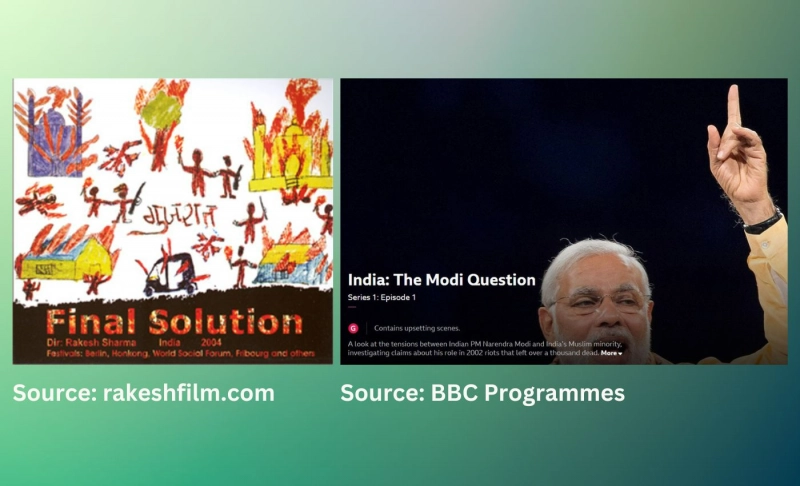By: Praveen Kumar H
January 27 2023

Although initially denied certification, Rakesh Sharma's 2004 film Final Solution was cleared by India's film certification body on October 10, 2004.
Context
On January 17, 2023, the BBC released the first episode of "The Modi Question," a two-part documentary about Indian Prime Minister Narendra Modi's ascent through the Bharatiya Janata Party (BJP) and his time as the chief minister of Gujarat, including the 2002 riots.
The Ministry of External Affairs has since issued a statement dismissing the documentary, calling it a "propaganda piece" that lacks objectivity and pushes a "discredited narrative." Reportedly, the government has since used emergency powers available under information technology rules to block the documentary from social media platforms and directed Twitter and YouTube to take down links sharing the film. However, the Congress, as the opposition party, has supported the documentary, with party leader Rahul Gandhi saying, "truth is truth" in response to a question about the controversial film.
On January 24, 2023, the Editor-in-Chief of Times Now, Rahul Shivshankar, took to Twitter to claim that Final Solution, a 2004 documentary film about the incident, was banned by the Central Board of Film Certification (CBFC) in August 2004 because it promoted "communal disharmony" during the Congress-led United Progressive Alliance (UPA) rule. He further questioned why the Congress now wanted the BBC documentary film surrounding the 2002 Gujarat riots to be aired.
However, this is not true. The Final Solution was cleared by the CBFC in October 2004, when the UPA was in power, and there has been no change in the Congress party's stance.
In Fact
The director of Final Solution, Rakesh Sharma, took to Twitter to refute Shivshankar's claim in a series of tweets. Sharma said the film was submitted to the CBFC in April-May 2004 during the Lok Sabha polls but was denied certification on July 30 when veteran actor Anupam Kher served as the CBFC Chairman. However, he added that Kher himself later cleared the film in October 2004 without any cuts.
While the National Democratic Alliance (NDA) was in power at the Centre at the time of the initial refusal of certification, in October 2004, when the film was finally cleared, the Congress-led UPA had taken over. According to a Hindustan Times report from October 15, 2004, despite his clearance, Kher was fired from his position as CBFC Chairman on October 14, possibly over his known BJP affiliations.
The initial refusal also led to a public disagreement between Kher and Sharma. According to a November 2004 report by The Hindu Frontline, Sharma claimed that the panel delayed watching the film when it was submitted and finally banned it without properly viewing it. However, Sharma wrote in a Facebook post that Kher later went ahead without his cooperation and cleared the film without a single cut on October 10, 2004.
Final Solution includes the mandatory CBFC certificate at the beginning of the print, and was presented with a National Award by the then-president of India, Pratibha Patil, in 2007.
The Verdict
The claim that the Congress' stance on clearing documentary films about the 2002 Gujarat riots has changed over time is incorrect. The release of Final Solution was delayed in 2004 under the NDA and later cleared when the UPA came in. The party's stance has not changed as it has questioned the current government's actions to block the BBC documentary about PM Modi and the riots in 2002. Therefore, we have marked this claim as false.